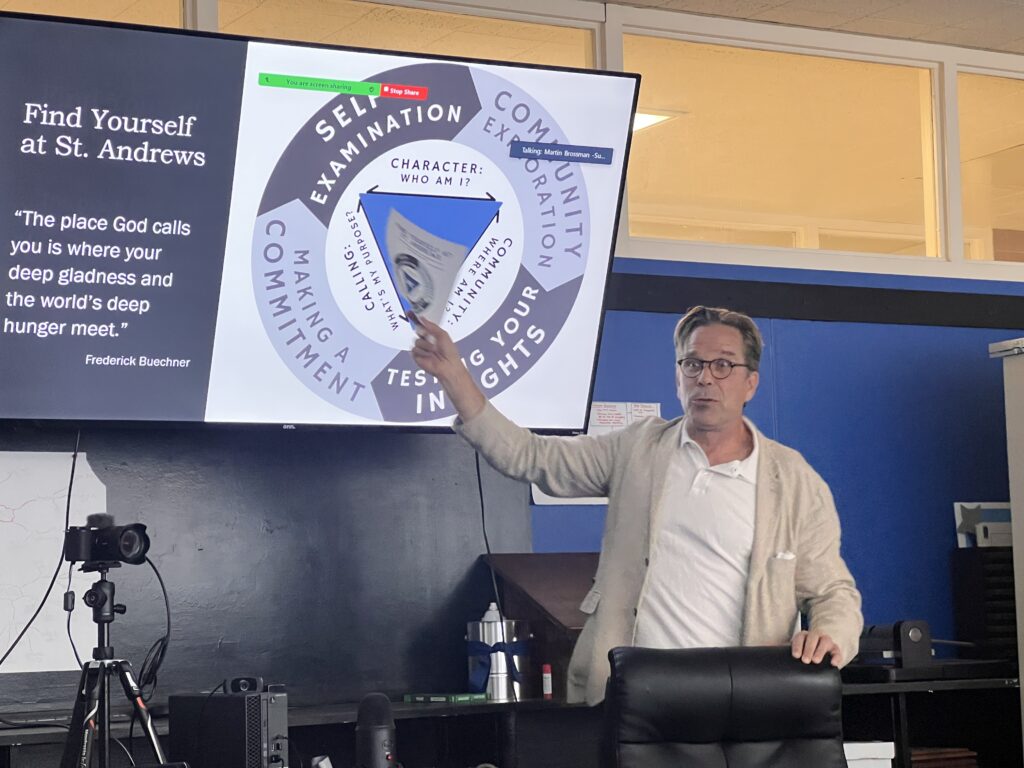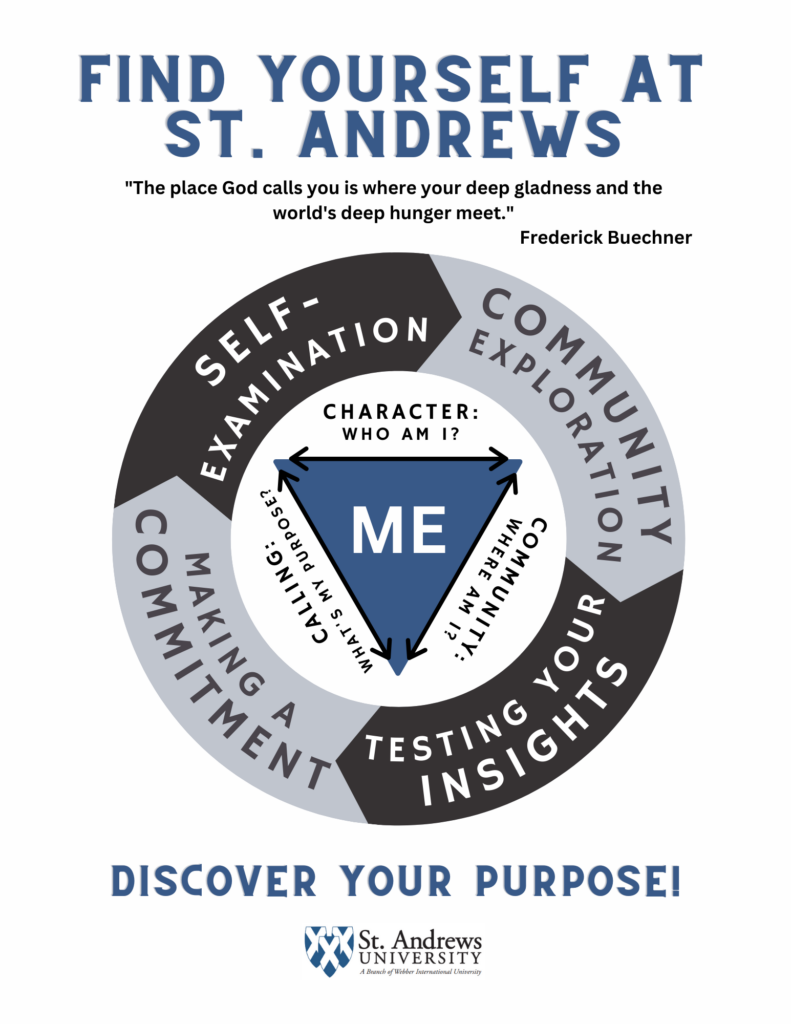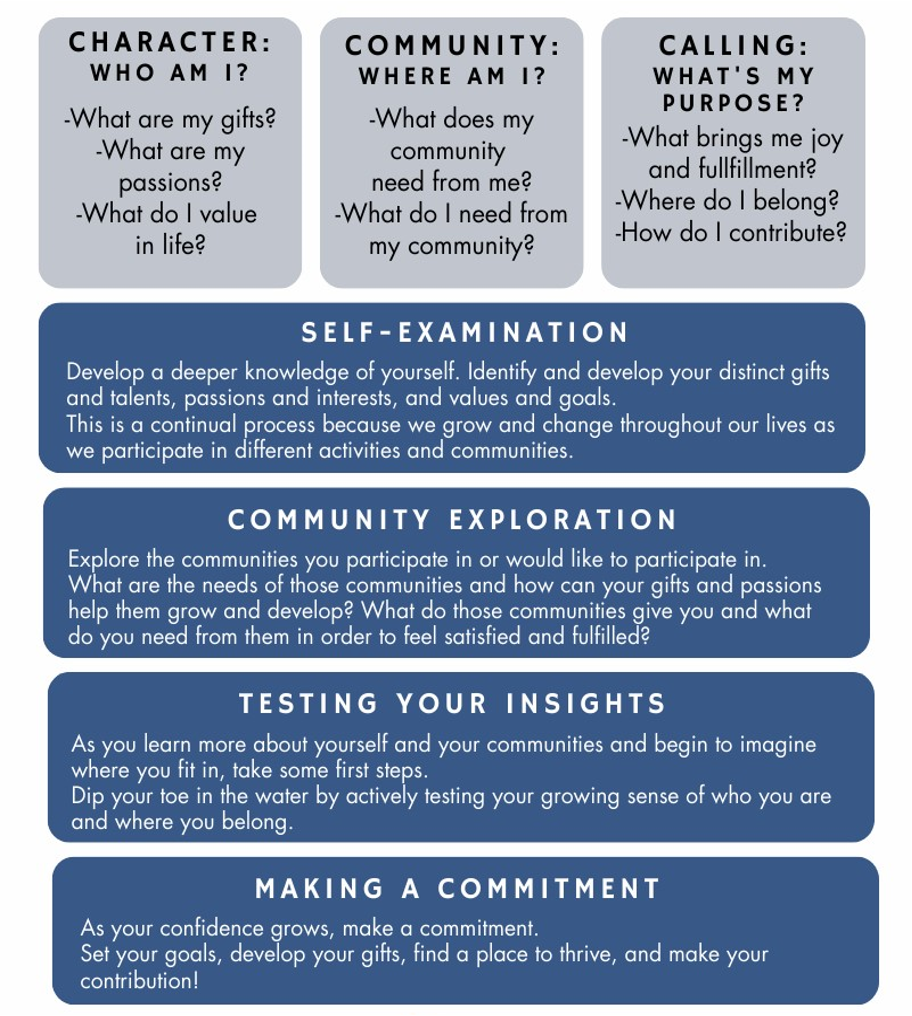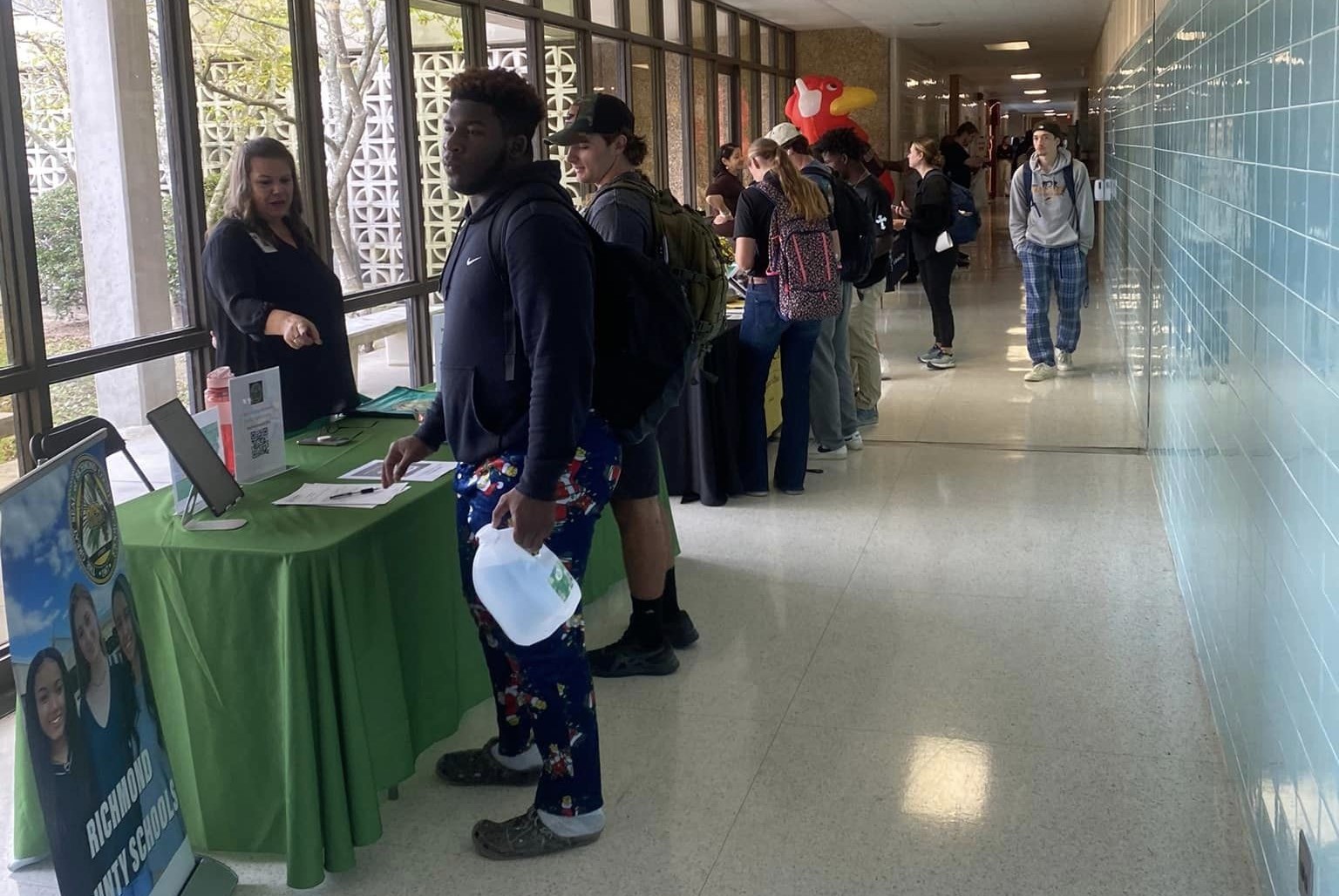Rev. Dr. Tim Verhey

St Andrews, in keeping with its mission as a liberal arts college, has always prided itself on providing a “life transforming” educational experience. Until now, it has been a fairly informal process. Provide an excellent curriculum, knowledgeable faculty, a supportive environment, and the rest takes care of itself. Students develop a deeper understanding of themselves, the world, and their place in it. Then, by the time they graduate, they are ready not only to make a living, but also to make a difference. The ripple effects are exponential.
But, in recent decades, society has changed, and St Andrews needs to change with it. The old informal approach no longer serves our students as they face an increasingly competitive world where it is easier and easier to fall behind and harder and harder to get ahead. Meanwhile, as the need for a college education has grown, so has the cost. For students and their families, the stakes have gotten higher and the margin for error has gotten narrower. Anxiety and insecurity are the natural consequences, however much we would like the college experience to be insulated from them.
So, like many colleges and universities, St. Andrews is focusing more attention on helping students become “career ready.” But, unlike many colleges and universities, St Andrews is not just beefing up the resources of its Office of Career Services. It is reviewing and revising its whole curricular model to integrate wholistic, career exploration and preparation into students’ college experience from the first day they arrive on campus to the day they throw their graduation caps in the air. And we are drawing faculty, staff, coaches, alumni, community leaders, and potential employers into the process as well. The aim is to surround our students with supportive, encouraging, helpful guidance as they navigate the fraught—and sometimes frightening—challenges of contemporary life.
St. Andrews’ approach is different in another way as well. Like every college, we want our students to gain the skills necessary to find a well-paying job so they can support themselves and their families. But St. Andrews has higher ambitions for them as well. Certainly, we want them to make a good living, but we also want them to lead a good life. Not only do we want them to succeed in their chosen career, but also to discern a meaningful calling. Since its origin, St. Andrews has identified itself as a Presbyterian liberal arts college with a distinctive mission that has self-consciously shaped its curriculum and co-curriculum. That mission is not to preserve Presbyterianism or to offer higher education for Presbyterians. It is to encourage deeper, more meaningful, and, ultimately, more satisfying engagement with God’s world among its students, faculty, staff, coaches, and alumni, irrespective of their religious convictions or lack thereof. This purpose is nicely captured in the Presbyterian writer, Frederick Buechner’s famous quote about vocation—a distinctly Presbyterian term for a meaningful life: “The place God calls you is the place where your deep gladness and the world’s deep hunger meet.” And you don’t need to be a Presbyterian, a Christian, or even believe in God, to understand the wisdom this definition imparts.

In the first few years of its existence, St. Andrews, along with Harvard University, won a national award for its innovative general education curriculum, which has remained foundational to a St. Andrews’ education ever since. Its aim has always been to encourage students to ask the big questions of life and to provide the resources to wrestle with them as they develop a deeper understanding of themselves, the world, and their place in it. Now, in an increasingly uncertain, competitive, and consumeristic environment, St. Andrews is revising that award winning curriculum to meet the needs of students today.
At the heart of this new initiative are three interrelated themes: character, community, and calling. SAGE, as the general education curriculum is called, requires students to engage in self-examination and community exploration from the beginning of their St. Andrews experience until the end of their St. Andrews journey. It asks them what they are good at, what they are passionate about, and what they value most in life. In other words, it encourages them to figure out who they are. It also asks them to look at the communities they participate in, what those communities expect from them, and what those communities provide for them. In other words, it encourages them to figure out what a community is and how it functions. Finally, it encourages them to experiment with how they fit into the place where they find themselves and the places they want to go. How do their particular gifts, passions, and values suit them for particular roles, responsibilities, and rewards in their current and future communities? How can they make their own distinctive contribution and what do they hope to get out of it? This approach enriches and deepens all sorts of decisions students need to make, from what major to choose, to which clubs and organizations to join, from what campus leadership opportunities to pursue to what career path to follow. As they progress through this curricular process, they build a portfolio of tools, reflections, experiences, and skills that guide them on their journey and provide the building blocks for creating a meaningful life, not to mention for making a good living.

Surrounding this curricular focused effort, St. Andrews is building a growing set of extracurricular opportunities designed to enrich the overall college experience. For example, this fall we started monthly Discovery Deserts, where students hear how two prominent campus figures discovered their purpose in life and have a chance to ask for advice about how to discover their own purpose. Meanwhile, we are working on more extracurricular resources: robust career fairs, alumni mentors, Bank of America sponsored trainings on everything from emotional intelligence to job interview skills, and a wide array of job shadowing and internship opportunities.
In the Chapel Hill Report, the document that envisioned the mission and curriculum for St. Andrews, the authors wisely wrote, “a quality college must constantly adapt its methods to preserve its essential functions in our changing times.” This new Find Yourself at St Andrews initiative is an effort to embody their insight. We are changing how we do things so that we can continue to fulfil our fundamental mission: providing a “life-transforming education” that prepares students not only to make a good living but also to live a good life. In the days and weeks ahead, we will be rolling out this new initiative, seeking support and advice from faculty, staff, students, alumni, parents, community members, and employers. On of the first things you will notice are posts from alumni and students about how St. Andrews has shaped their character, provided community, and helped them discern their calling. We look forward to hearing from everyone—including you—who has questions about what we are doing and advice about how we can do it most effectively.
